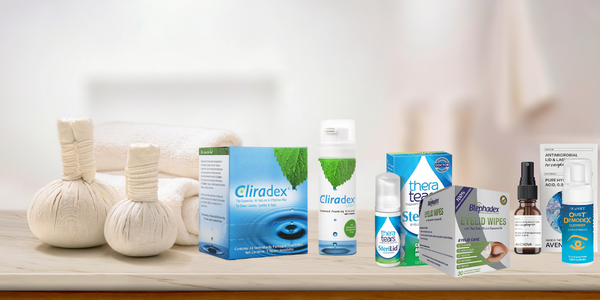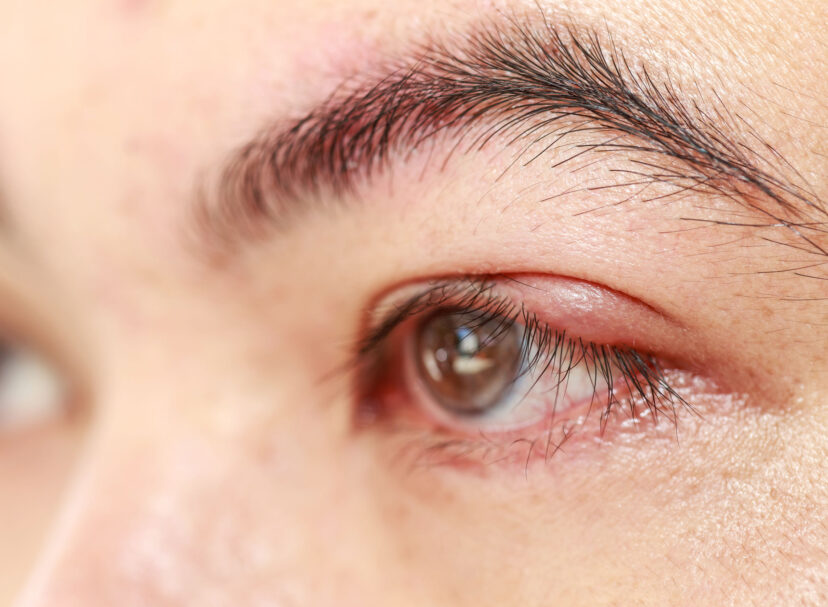Red, swollen, watery and itchy eyes are a telltale sign of allergies – especially the seasonal kind. They go along with sneezing. The combination can make you feel like you have a cold or an infection. One of the only ways you may be able to distinguish between allergies and infection, actually, may be the time of year and if you happen to know you have allergies that are triggered then. Otherwise, it might take an eye doctor to tell you what is really going on. This is something that you will want to be sure you understand so that you don’t overlook an infection that could become more serious by thinking that it is ‘just allergies.’
Allergy or Eye Infection?

The Cleveland Clinic put together a resource to help people determine when they are suffering allergies and when it is actually an infection or illness that will require further medical treatment. Keep in mind that allergies can make you miserable, but eye infections can be contagious. Infections can come from a virus, bacteria, Demodex, or a fungus. Symptoms will vary, depending on the source of the infection and to some extent the individual. Pain or more than tears in your eyes is a good indication that your suffering is due to something other than just allergies. In general, however, the following is a good indicator.
| Common Symptoms | Allergies | Infections |
| Redness | X | X |
| Itching | X | X |
| Burning | X | X |
| Clear, watery discharge | X | X |
| Pain | X | |
| Gritty feel in eyes | X | |
| Sensitivity to light | X | |
| Thick discharge | X – Bacterial | |
| Mucus-like discharge | X – Viral |
What Causes Eye Allergies

Your eyes show symptoms when you develop allergic conjunctivitis, or ocular allergy. Essentially this happens because otherwise harmless particles in the environment trigger an immune response in your body. Triggers include pollen, dust, dander, perfume, makeup, contact lenses, or mold. Conjunctival irritation is the result.
The conjunctiva is the membrane that covers the exposed sclera (white) of the eye and the inside of the eyelid. It is clear and serves the purpose of keeping the eye moist and lubricated and keeps foreign particles from penetrating the sclera. (Source). When an allergen is encountered your immune system produces antibodies (immunoglobulin) that release chemical mediators in cells including histamine. Histamine causes inflammation and swelling of the blood vessels in your eyes – which leads to the allergy symptoms that you are suffering. This is your body’s mechanism to remove what it is allergic to (the allergen) from your body.
Avoid Eye Allergies

The best guard against allergies is to avoid triggers as much as possible. If you cannot avoid them, or your avoidance tactics are not sufficient then you should see an allergist and take steps to manage the symptoms and reduce the irritation that they cause.
Antihistamines are a type of medication that may relieve some symptoms. They come in oral or nasal forms. Your allergist may recommend a prescription formula if over the counter versions are not strong enough to keep you comfortable. (Source). You can also use decongestants that you can buy over the counter. These come in the form of eye drops, which can reduce redness in the short term by constricting blood vessels. Some of them have an antihistamine in them to diminish itching as well. (Source).
Another way to alleviate allergy symptoms is to provide comfort to your eyes. This can be done with a cold compress and helped by not touching or rubbing your eyes as that causes further irritation. You can also use saline to rinse your eyes because allergies can alter the quantity and quality of the tears that your eyes produce. Dryness will further exacerbate the irritation from allergies. Saline may be used to wash allergens from your eyes. (Source).
Cliradex Light can also be used to alleviate temporary redness or discomfort. It is an eyelid and face cleanser that is 100% vegan and preservative free, made to be gentle enough for everyday use. It contains the main component T4O that is derived from tea tree oil, which will help you to keep any Demodex mites at bay.





